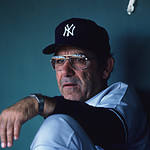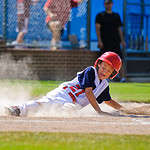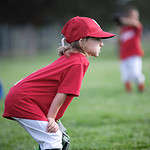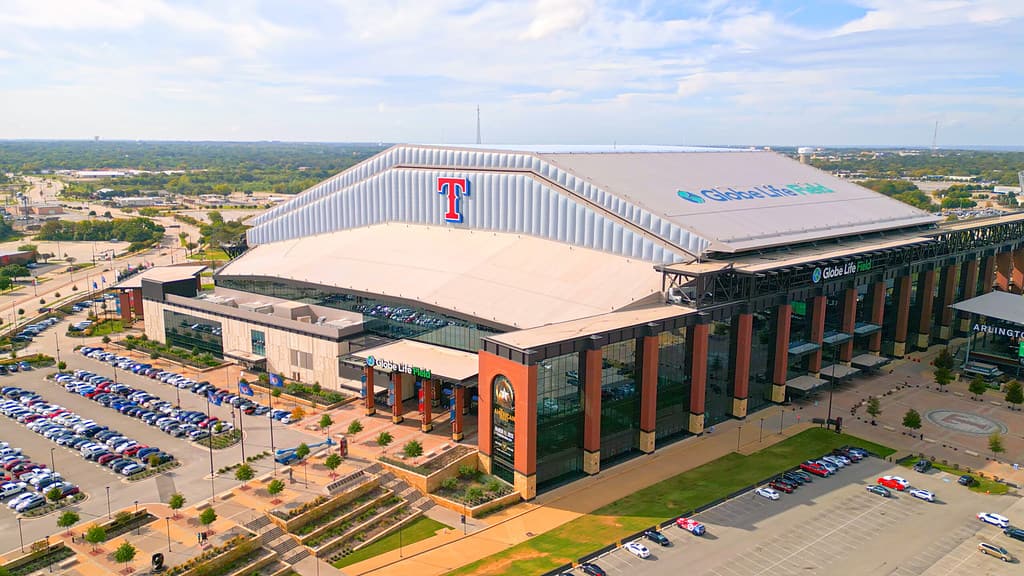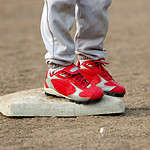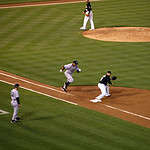Baseball is a sport that has been played for over a century, and it has become a staple of American culture. One of the most important roles in this sport is that of the umpire. Umpires are responsible for making critical decisions on the field, such as calling balls and strikes, determining whether a runner is safe or out, and enforcing the rules of the game.
The role of the umpire has evolved over time, as the game of baseball has changed. In the early days of the sport, the umpire was often a player on one of the teams, and there were no clear rules or guidelines for how the game should be played. However, as the sport became more organized, the need for impartial officials became more apparent. Today, umpires are highly trained professionals who are responsible for ensuring that the game is played fairly and according to the rules.

Roles and Responsibilities of a Baseball Umpire
As a baseball umpire, you play a crucial role in ensuring the fairness and safety of the game. Your primary responsibility is to enforce the rules of the game and make impartial judgments on every play. Here are some of the key responsibilities of a baseball umpire:
- Making Calls: The most visible part of your job is making calls on the field. You must be knowledgeable about the rules of the game and have a clear understanding of what constitutes a fair or foul ball, a safe or out call, and so on. You must also be able to make split-second decisions, often in high-pressure situations.
- Managing the Game: Umpires are responsible for managing the game and ensuring that it proceeds smoothly. This includes keeping track of the score, monitoring player behavior, and making sure that the game is played within the allotted time.
- Working as a Team: Baseball umpires work as part of a crew, and each member has specific responsibilities. The crew chief is responsible for making final decisions on close calls, while the other members of the crew help with positioning, signaling, and other tasks.
- Maintaining Safety: Umpires are also responsible for ensuring the safety of the players. This includes making sure that players are wearing the appropriate safety gear, such as helmets and shin guards, and enforcing rules related to collisions and other dangerous plays.
- Handling Disputes: Finally, umpires must be able to handle disputes and conflicts that arise during the game. This may involve mediating between players and coaches, resolving disagreements over calls, and maintaining order on the field.
In summary, the role of a baseball umpire is to enforce the rules of the game, make impartial judgments, manage the game, maintain safety, and handle disputes. It is a challenging and rewarding job that requires a high level of knowledge, skill, and professionalism.
Types of Umpires in Baseball
In baseball, there are three types of umpires: the Plate Umpire, the First Base Umpire, and the Home Plate Umpire. Each of these umpires has a specific role to play in ensuring that the game is played fairly and according to the rules.
Plate Umpire
The Plate Umpire, also known as the home plate umpire, is responsible for making calls at home plate. This umpire is positioned behind the catcher and is responsible for calling balls and strikes, as well as making other calls such as foul balls, checked swings, and hit-by-pitches.
First Base Umpire
The First Base Umpire is responsible for making calls at first base. This umpire is positioned near first base and is responsible for making calls on plays such as ground balls, line drives, and pick-off attempts.
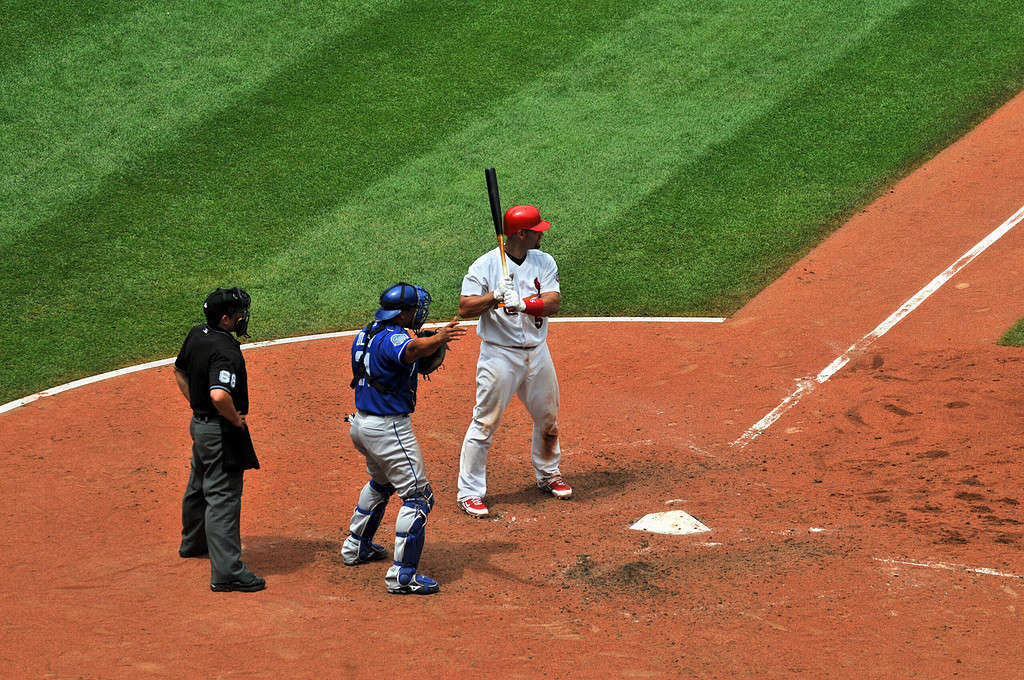
Home Plate Umpire
The Home Plate Umpire, also known as the crew chief, is responsible for overseeing the entire game. This umpire is responsible for making final decisions on disputed calls, as well as ensuring that the game is being played fairly and according to the rules.
In addition to these three types of umpires, there are also other umpires who may be present at a game, such as base umpires and replay officials. However, the Plate Umpire, First Base Umpire, and Home Plate Umpire are the three primary umpires who are responsible for ensuring that the game is played fairly and according to the rules.
Overall, the role of the umpire in baseball is a critical one, and it requires a great deal of knowledge, skill, and experience. By understanding the different types of umpires and their roles, players and fans can better appreciate the important work that umpires do to keep the game fair and exciting.
Key Umpire Signals and Rulings
Umpires play a crucial role in baseball, making calls on whether a player is safe or out, whether a pitch is a ball or strike, and whether a hit is fair or foul. To make these calls, umpires use a variety of signals and rulings to communicate their decisions to players, coaches, and fans.
Strike and Ball Calls
The most common signals used by umpires are for strikes and balls. A strike is called when a pitch is in the strike zone and a ball is called when it is outside the zone. Umpires use a variety of signals to indicate these calls, including verbal calls, hand signals, and body language.
Safe and Out Calls
Umpires also make calls on whether a player is safe or out. When a player is safe, the umpire will make a “safe” signal, which involves extending both arms out to the sides. When a player is out, the umpire will make an “out” signal, which involves raising the right arm straight up in the air.
Foul and Fair Ball Calls
Another important call made by umpires is whether a hit is fair or foul. When a ball is hit, the umpire will closely watch its path and make a call based on where it lands. If the ball lands in fair territory, the umpire will make a “fair ball” signal, which involves pointing with one arm down the foul line. If the ball lands in foul territory, the umpire will make a “foul ball” signal, which involves extending both arms out to the sides.
Count and Ball Four Calls
Umpires also keep track of the count during each at-bat, indicating the number of strikes and balls. When a batter is walked, the umpire will make a “ball four” signal, which involves extending one arm out to the side.
Appeal and Rulings
Finally, umpires are responsible for making rulings on a variety of other calls, including whether a runner left a base too early or whether a fielder caught a ball before it hit the ground. If a coach or player disagrees with an umpire’s call, they can appeal the call to another umpire for a second opinion.
Umpire Equipment
Umpires in baseball are responsible for making fair and impartial calls during the game. They need to be well-equipped with proper gear to protect themselves while on the field. Here are some of the essential umpire equipment that they use during a game.
Mask
The mask is an essential piece of equipment that protects the umpire’s face and head. It is usually made of durable materials like metal or plastic and has a padded interior for comfort. The mask must fit securely and comfortably to prevent any injuries.
Chest Protector
The chest protector is another vital piece of equipment that umpires wear. It protects the chest and stomach area from foul balls and wild pitches. It is usually made of hard plastic and has foam padding on the inside for added protection.
Cap
The umpire’s cap is an integral part of their uniform. It is usually black and made of a lightweight material to keep the umpire cool during the game. The cap must fit snugly and securely on the head to prevent it from falling off during the game.
Indicator
The indicator is a small device that umpires use to keep track of balls, strikes, and outs during the game. It is usually a small plastic or metal device that fits in the palm of the umpire’s hand. The indicator must be easy to manipulate and read to ensure accurate calls.

Plate Brush
The plate brush is a small brush that umpires use to clean off home plate between innings. It is usually made of a soft bristle material and must be easy to handle and use.
In conclusion, umpire equipment is essential for the safety and accuracy of calls during a baseball game. The equipment must be of high quality and fit properly to ensure the best possible performance from the umpire.
Famous Baseball Umpires
Baseball umpires are an essential part of the game, and some have become famous for their skills and contributions to the sport. Here are a few of the most notable umpires in baseball history:
Cy Rigler
Cy Rigler was a National League umpire from 1906 to 1935 and worked in ten World Series. He was known for his calm demeanor and ability to make tough calls. Rigler was also a player-manager for the St. Louis Cardinals and Pittsburgh Pirates before becoming an umpire.
Bill Klem
Bill Klem was a National League umpire from 1905 to 1941 and worked in 18 World Series. He was known for his strict adherence to the rules and his ability to manage players. Klem was the first umpire to wear a chest protector and was inducted into the Baseball Hall of Fame in 1953.
Al Barlick
Al Barlick was a National League umpire from 1940 to 1971 and worked in seven World Series. He was known for his consistency and fairness, and players respected him for his knowledge of the game. Barlick was also the first umpire to use instant replay to review a call.
Tim McClelland
Tim McClelland is a current Major League umpire who has worked in four World Series and two All-Star Games. He is known for his clear and confident calls and his ability to manage players and coaches. McClelland has also been involved in several controversial plays, including the infamous “Pine Tar Incident” in 1983.
These umpires and many others have made significant contributions to the game of baseball and have helped to shape the way it is played today.
The Umpire and the Game
The umpire is an essential part of the game of baseball. They are responsible for making crucial decisions that can impact the outcome of the game. Their role is to ensure that the game is played fairly and within the rules.
During a game, the umpire is responsible for making calls on balls and strikes, safe and out calls, and fair and foul balls. They must also keep track of the count, the score, and the time. Umpires are trained to be impartial and to make decisions based on what they see, not on personal biases.
In some cases, the umpire’s decision can be challenged by a manager or player. This is done through a review process, where the play is reviewed by a team of umpires in a booth. If the call is overturned, the game continues. If not, the original call stands.
Umpires work in various levels of baseball, from the minor leagues to the major leagues. Full-time umpires are employed by Major League Baseball and work throughout the regular season and playoffs. The World Series, which is the championship series of Major League Baseball, is officiated by a team of experienced umpires.
Ejections are also a part of the game, and umpires have the authority to eject players, managers, and coaches for violating rules or behaving inappropriately. The strike zone, which is the area over home plate that a pitch must pass through to be called a strike, is also an important aspect of the game that umpires must monitor closely.
In recent years, technology has been introduced to assist umpires in making calls. Umpire cam, for example, provides a unique perspective on the game from the umpire’s point of view. However, despite these advancements, the role of the umpire remains critical to the game of baseball.
Umpire Training and Certification
Umpires are an essential part of the game of baseball, and their role is critical in ensuring the game is played fairly. To become a certified umpire, one must undergo rigorous training and certification programs.
The training process typically involves gaining experience by umpiring games at the local level or in minor league baseball. Umpires can also learn from books, groups, and mentors, which can help them improve their skills and knowledge of the game.
To become a certified umpire, one must pass an evaluation process that tests their knowledge of the rules and their ability to make accurate calls. Certification is necessary for umpires who want to work in Little League Baseball, Babe Ruth League, National Federation of State High School Associations, NCAA, and other baseball organizations.
Certification requirements can vary depending on the organization, but generally, umpires must pass a written test, demonstrate their on-field skills, and complete a certain number of games.
Consistency is essential for umpires, and they must practice regularly to maintain their skills. They must also be able to answer questions from coaches, players, and fans about their calls.
In conclusion, becoming a certified umpire requires dedication, hard work, and a commitment to the game of baseball. With proper training and certification, umpires can ensure that the game is played fairly and that all players have an equal chance to succeed.
Umpires in Popular Culture
Umpires have been a part of baseball since the beginning. They are responsible for making sure the game is played fairly and according to the rules. But umpires are not just important in the game of baseball; they have also made appearances in popular culture.
Umpires on Twitter
In recent years, umpires have taken to social media to share their thoughts and opinions on the game. Some umpires, like Doug Eddings, have even created their own Twitter accounts to connect with fans and share behind-the-scenes moments from games.
Umpires in Washington Nationals
In 2021, Washington Nationals manager Dave Martinez was ejected from a game for arguing with umpires. The incident sparked a debate about the role of umpires in the game and whether or not they should have the power to eject managers.
Umpires in Florida
In Florida, umpires are required to wear slacks during games. This is in contrast to other states where umpires are allowed to wear shorts or other more casual attire.
Umpire Critique
Umpires are often subject to critique from players, coaches, and fans. Some argue that umpires have too much power and can influence the outcome of games. Others believe that umpires are an essential part of the game and should be respected for their role.
Overall, umpires have played a significant role in baseball and popular culture. From social media to controversial ejections, umpires have become a topic of discussion both on and off the field.
Frequently Asked Questions
What is the role of the home plate umpire in baseball?
The home plate umpire is responsible for making calls on balls and strikes, as well as determining whether a pitch is a foul ball or a hit. They also make calls on plays at home plate, including whether a runner is safe or out.
What are the duties of baseball officials?
Baseball officials, including umpires, are responsible for enforcing the rules of the game and ensuring fair play. They make calls on plays and provide guidance to players and coaches when necessary.
How many umpires are there in MLB playoffs?
During the MLB playoffs, there are four umpires on the field for each game. This includes the home plate umpire, as well as umpires at first, second, and third base.
Why are baseball referees called umpires?
The term “umpire” comes from the French word “nonper,” which means “not equal.” In baseball, umpires are responsible for making decisions and enforcing the rules, which puts them in a position of authority over the players.
What is the history of MLB umpire uniforms?
MLB umpire uniforms have evolved over time, but have generally included a black suit, white shirt, and black tie. In recent years, umpires have also worn black hats and shoes, as well as protective gear like chest protectors and shin guards.
Do baseball umpires get paid?
Yes, baseball umpires are paid for their work. The exact amount varies depending on experience and level of play, but MLB umpires can earn up to $500,000 per year.
- UCLA Softball: Let’s Go Bruins! - February 12, 2024
- Youth Softball Helmet Buying Guide: Keep ‘Em Safe - February 12, 2024
- Youth Softball Pants: Our Top Picks for Your Top Player - February 12, 2024

